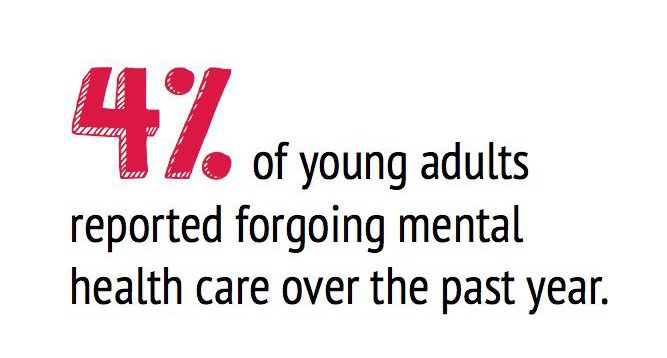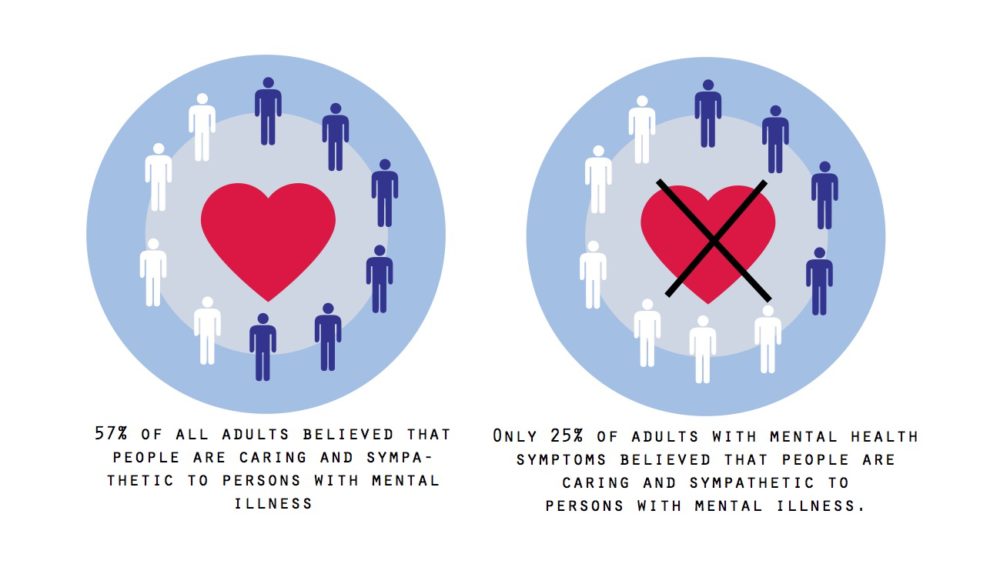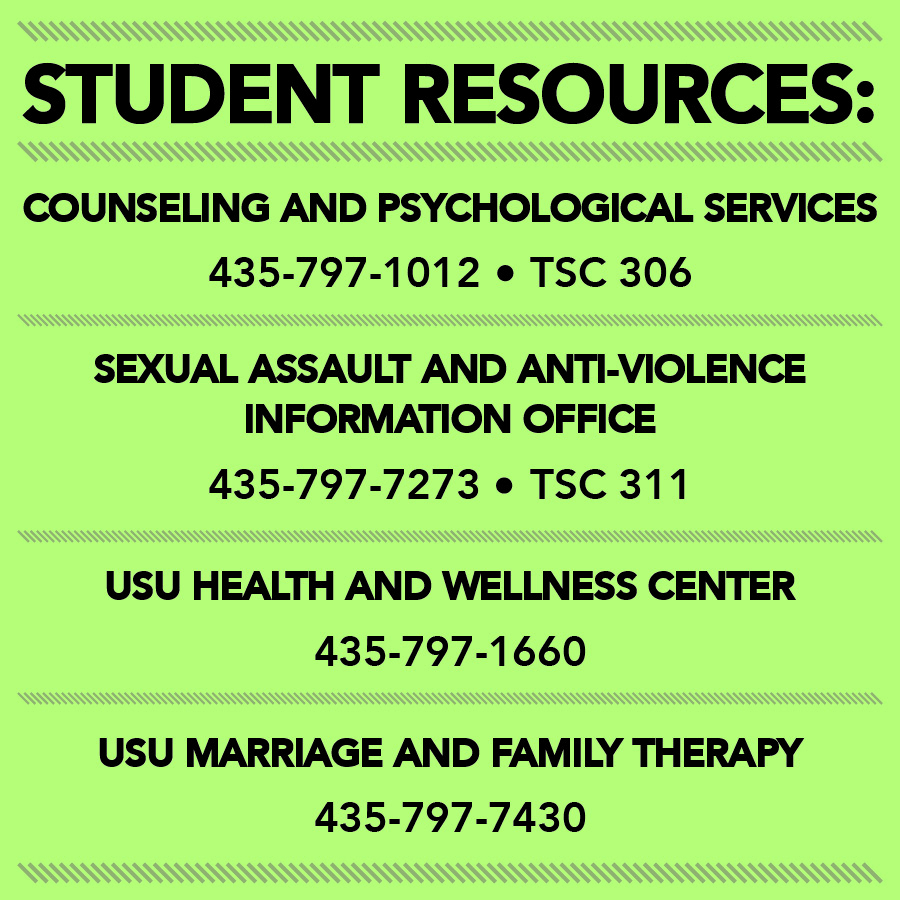On-campus mental heath resources for students
Utah State University provides many resources to students or students who are struggling with mental health issues or dealing with traumatic events.
USU provides 19 free services for students to help them with any problems they may be having.
One of the many services USU provides is Counseling and Psychological Services.
The clinical director and staff psychologist for CAPS, Mark Nafziger, said CAPS provides many different services for students who are eligible (students must be enrolled with six to nine credits at minimum).
Nafziger said CAPS includes individual and group counsel therapy, outreach and presentations, consultations with groups of student affairs and psychoeducational assessments (assessments for people who think they have a learning disability, like ADHD).
The staff includes a variety of trainees on different levels, including a peer-reach group of undergraduates, students from the psychology department, as well as graduate assistants and students who are completing their pre-doctoral internships.
Nafziger said scheduling an appointment includes filling out 20 minutes of paperwork and scheduling a 30-minute initial consultation with a CAPS counselor to understand why the student came in and what their concerns are.
CAPS also provides online sources for those who aren’t comfortable with a face-to-face consultation.
 Savannah Candland
Savannah Candland Nafziger said he would like students to know there isn’t a problem too small to be able to come and seek help. He said many students come to the CAPS office with test anxiety, adjustment and relationship issues, or seek help with developing relaxation skills, anxiety management skills and coping strategies.
“We don’t want students to feel like they can’t come in because they feel like there are other students who have more serious concerns,” Nafziger said. “Because we would like to be helpful to a big range of students.”
The Sexual Assault and Anti-Violence Information Office is another free and confidential resource for students.
SAVVI outreach and advocacy specialist, Felicia Gallegos, said SAAVI serves primary survivors (those who experience interpersonal violence themselves) and secondary survivors (those who know somebody who has experienced violence).
“Interpersonal violence includes a broad range of things,” Gallegos said, “It includes bullying, stalking, hazing, sexual assault, rape, domestic violence, dating violence, and unhealthy relationships, generally.”
Gallegos said SAVVI can help students with much more than reporting sexual assault through its three branches: outreach and prevention, advocacy and therapy.
The outreach and prevention branch includes training and classroom presentations, while the advocacy branch includes three specialists who help students report sexual assault crimes and make accommodations to help the victim heal or deal with reporting.
Gallegos said the victims who go through with reporting can receive help from SAVVI advocates. Advocates are with clients throughout the entire reporting process helping them report the assault to either the Title IX office or to the police, preparing the victim for interrogation, and — if it ends up going to court — acting as the victim’s advocate.
“We’re a support system,” Gallegos said.
Gallegos said it’s important to know that if a victim decides to report their assault to the police, the interrogation is automatically shared with the Title IX office because police reports aren’t private and because SAVVI helps with students at USU. But if a victim decides to report to Title IX first, Title IX is a private entity, so they don’t send the interrogation to the police unless the victim grants them permission to do so.
The therapy branch includes two therapists who specialize in trauma therapy and cognitive processing to help victims process and heal from their experiences.
Gallegos said students don’t come in just to report their assaults, but for a variety of other reasons. Students can come to them just to talk through their experience and there is no pressure to identify what happened or to seek action.
 Savannah Candland
Savannah Candland Gallegos also emphasized that just because a victim reaches out to SAVVI and talks to them does not mean that SAVVI will file a report.
“That’s not how it works,” Gallegos said. “It’s completely in your hands, and really, you just shouldn’t have to do it alone. That’s why we’re here.”
Gallegos said there is a SAAVI club and a peer-educator program on their website, and are great ways to help those around you and it’s a way for survivors to heal, by helping others.
“You’re not alone and you don’t have to be,” Gallegos said, “You don’t need to process it alone.”
If you or someone you know is suffering from mental illness or experiencing a traumatic event, feel free to call:
- Campus police: 435-797-1939 for after-hours emergency help on campus for trauma and life-threatening situations
- CAPSA 24-Hour Crisis Line and Mobile Crisis Response team (for domestic violence and sexual assault services in Cache Valley) 435-753-2500
- CAPS office: 435-797-1012
- SAAVI: phone number: 435-797-7273, or e-mail: saavi@usu.edu
- National Suicide Prevention Lifeline: 1-800-273-8255
- If you are deaf & hard of hearing call: 800-799-488
- Ayuda En Español: 1-888-628-9454
Or visit their website for more options.
— cawolf9290@gmail.com
@WereWolf_74

